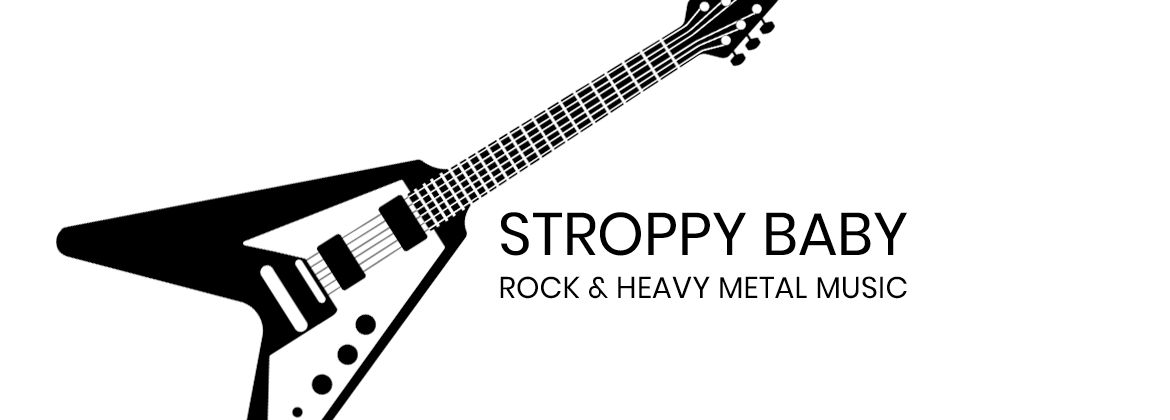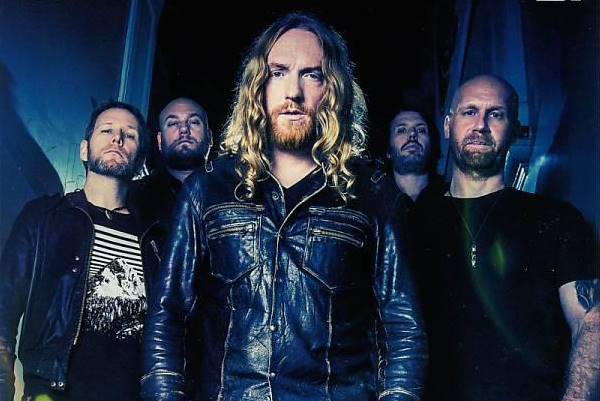Dark Tranquility – Built to Last
Latest Release: Construct (Century Media/EMI)
Website: www.darktranquility.com
Swedish melodic death metal is a term bandied about for years, probably as a nice category for marketing purposes. Similarly, the Gothenburg sound tag has, like any label, both aided and frustrated those at the receiving end. Dark Tranquility experienced this first hand but over more than two decades, have kept their unique musical style evolving. After many years since their last tour to Australia, front man, producer and songwriter Mikael Stanne explains all of the above and more.
Listening to the latest album, Construct, is it still challenging to transition between the death metal vocals and clean vocals in a live setting? The album has plenty of it.
The sound kind of happened when we started writing the album. It just felt like things needed to be a little different. It had a more melodic vibe. I wouldn’t say mellow but more emotional. The songs were simpler or straightforward but when I started writing the lyrics I felt that this needed to be expressed differently. Some of the songs needed more of the clean vocals. It came out naturally and since we were all in the studio, this was easier to experiment with recording different versions of songs or at least choruses to see what worked best. Normally we just write in the rehearsal room, finish up the songs and then record them. This was a big change in how we wrote and conceived the album. It turned out well and we loved that process as it was creative and interesting.
There is a bit of electronics on there as well. That certainly adds to the hypnotic listening experience with outros that change or move in and out of a rhythmic feel.
Yeah, that is also because that we wrote songs in the studio leaving more room for experimentation. Martin Brändström [keyboards and programming] has really come into his own with the stuff that he does. He started using lots of different keyboards and sounds which, in combination with Jens Bogren’s mix, really helped. Jens really knew how to incorporate the keyboards into our sound and made it organic. It has been hard to do that in the past because you generally want heavy guitars with drums and a little keyboard melody here and there. He managed to put it all together and make it work.
How far do you take experimentation before it stops sounding like Dark Tranquility?
I don’t know. We start trying really hard to go out of our way to be different but then we pull it back a little bit because everything has to pass through our filters. The music that we grew up with and have been playing for the last twenty years is in our system. It is hard to get too far away from it because the basic melody is there and the willingness to express anger and frustration comes out as well. It wouldn’t be natural if we did anything else or something too far out of our comfort zone, so to speak. This is the third album we’ve recorded in the same studio which is run by Martin Brändström. He has been setting that up so that we can have our own studio to work there as much as we like. We always use someone else for mixing though. Recently enough it was with Tue Madsen in Denmark [We Are the Void] and for this latest album [Construct], it was Jens, who did an amazing job.
You are touring here pretty soon but for Australian fans it has been many years since Dark Tranquility last toured here. Would you say that nowadays, a song like ‘The Silence in Between’ is the live sound and style we can expect to experience?
Yeah, I guess so and we’ve been checking out set lists for this tour. We have tonnes of songs and it is going to be the longest set we’ve ever done. We’re bringing it to Australia as well so it is kind of a ‘sorry about the absence, here’s a bunch of songs’. It is incredibly hard putting a set list together [to please everyone] but we tend to come back to the basic songs that we know people want to hear and then we put in songs that we love to play as well as a lot of new stuff. It is really hard to balance it all out but people have been really supportive of this tour so it feels good.
Many Swedish bands have toured here multiple times and quite regularly. What is the reason for the delays in touring here again?
I don’t know, there have been opportunities over the years but in trying to put it together, for different reasons, it just never happened. We’re super excited to come back but it has been far too long, for sure.
Are there any old songs that are taxing on your voice when singing them live, these days?
There are some that are more difficult than others but I’ve adapted to what I do right now. It normally works and so far it hasn’t been much of a problem. Sometimes it can be difficult to get back into that same lyrical mindset that you had when you wrote a song.
For lyrics, do you carry around say a notebook if a great line springs to mind?
Yeah, I normally do. I just have something always lying around, especially at home. There is always something that you want to quickly get down on paper. Normally, as we start in the writing process for an album I have that stuff with me, collecting material.
But does that them run the risk of putting music to lyrics?
It is music first for us. I might write lyrics as the other guys are writing songs but as soon as we finish a song, I’ll listen to it multiple times to get the feel for it and then I’ll apply the kind of lyrics to it that I feel are appropriate. The lyrics always come last, for sure.
What would you say is your pinnacle moment in succinct and expressive lyrics writing?
Oh wow, I think that is tough but in concert there are a few songs with some lines at least that kind of highlight some of the main themes on the album. I think for Construct, the sons ‘What Only You Know’ and ‘State Of Trust’ are important lyrics to me.
Dark Tranquility, as a band, produces their own albums. When do you say, this project is completed, move on to the next one?
It is hard to walk away from a song, especially in the studio, where anything is possible. You find yourself going, ‘oh, fix this, fix that’ and normally we’ll make back up versions of songs so that we can go back to earlier versions. Sometimes we just have to leave it to the producer or whoever mixes it to finish it. But, it’s difficult to walk away and move onto the next song. That is especially so for Martin who does all of the keyboard layers.
What are festivals in Europe like to play compared to your own headline shows?
I really enjoy the festivals because you can make a short and sweet set. There are tonnes of people but I do prefer a proper headlining show where everybody is there for the same reason and you get to interact with them when you are on a smaller stage. I love going to a festival though for just hanging out with friends, meeting new bands and seeing cool shows. That is one of the highlights of the summer season.
Dark Tranquility would be one of the first bands shoehorned into the category of the Gothenburg sound. Did it bother you to have the band tagged in that way or did it turn out to be a good thing?
I did bother me at first because it was kind of saying, ‘hey, you’re a band that just sounds like all the other bands’. Our thing was always to be original, make our own music and never sound like anything else but all of a sudden we were lumped together with other bands, great as they were. But now, I’m fine with it as the Gothenburg sound is kind of a stamp of approval or proof of quality. It doesn’t mean it sounds the same. Some certain qualities are important such as melody but more than anything, it is good quality music played by real musicians in an honest way and from the heart.
What is the biggest change you’ve noticed in the industry in the last twenty years?
I think it is the decreasing sales, that is definitely the biggest change. All of a sudden people weren’t buying records anymore and it was weird. That was difficult to deal with and I guess now the thing is that it is becoming increasingly difficult to then tour or to put together tours because there is such huge competition from all of the other bands that are out there touring at the same time. So, you’re competing for the fans in every single city. It is a luxury problem that there are so many bands out there touring. For a fan it is awesome but it is also frustrating if you cannot go to all of the shows.
When you do that kind of thing, does it tempt you to stamp out a template for your following albums? How do you stop repeating yourself musically?
For us it has always been that every album is a kind of a reaction to the one before. You don’t want to make the same thing over again. You’ll know it did work but you don’t want to do it again. It is always a conscious decision to move as far away from the previous album as possible to just not be that band that makes same album over and over again. That would be horrible.
You recently had a vinyl flexi disc for a b-side [‘Sorrows Architect’] in a Decibel magazine halfway through last year. You’d be old enough to remember vinyl before digital technology took over. Do you find a level of irony in vinyl resurfacing?
Of course, yeah and I love the fact that vinyl is back. Today we are in Cleveland, Ohio and we have three more weeks left of our American tour so we’re going to start selling a vinyl seven inch. It actually works, especially in Europe and I guess in the States too. I love the resurgence of vinyl. My favourite record store back in Gothenburg is selling more vinyl than they can sell CDs. It is magic and I love that.
Maybe it brings out the real music fans who are willing to pay for musical product.
A lot of people are getting tried of the mp3 files and streaming. They want something real to hold onto for their collection. Perhaps it is people that download all their albums illegally and then they buy vinyl of the ones that they really love. I’m okay with that.
Which album would you say is the one where everything came together as a band unit?
I felt like that in 1995 when we released The Gallery. That was when I could play guitar in the band and I started singing on that album plus we got a new guitar player. We felt like we could actually play, compose and write songs that are cool. We were twenty five years old and felt as though we could do anything with no boundaries or rules. We could do anything we wanted. That was an amazing feeling and was where we found our sound.

